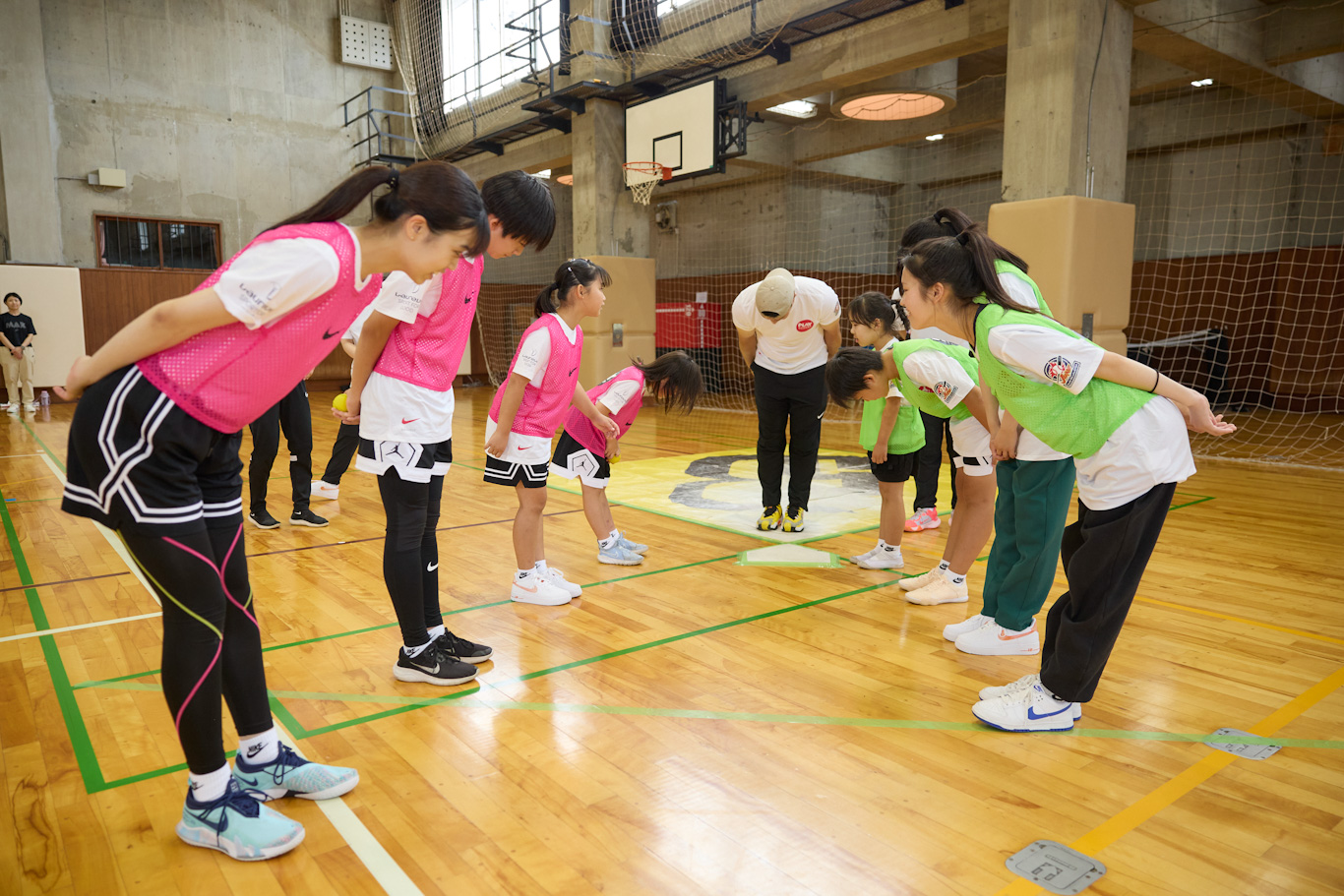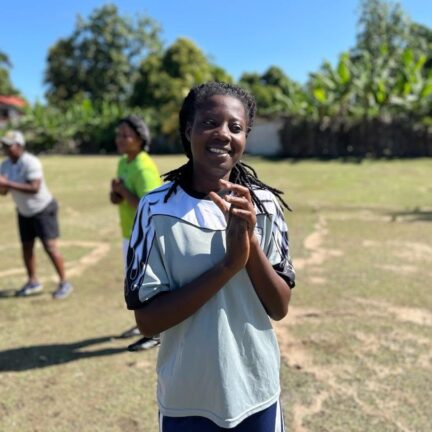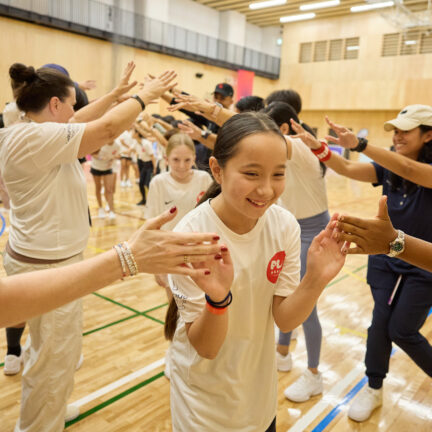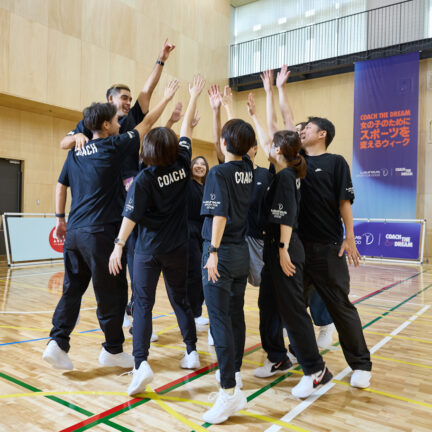Gender equality, promoting rights of girls and women through sport will not be accomplished without challenges. The amount of physical activity among children these days is the lowest on record, and World Health Organization states that only one in five children is getting the exercise they need.
In Japan, girls between the ages of 6 and 15 are 20 percent less likely than boys to participate in sport, and girls are nearly twice as likely to drop out of sport by age 15, due in part to lack of access to sport venues and physical activity experiences that meet their needs. To address these issues, Play Academy with Naomi Osaka started its activities in Japan in summer 2020.
In 2024, three Tokyo-based programs have been additionally supported through Play Academy’s grants: General Incorporated Association Junk Baseball Club, NPO J Camp, and General Incorporated Association Tokyo Sports Cross Lab.
General Incorporated Association Junk Baseball Club – Baseball 5
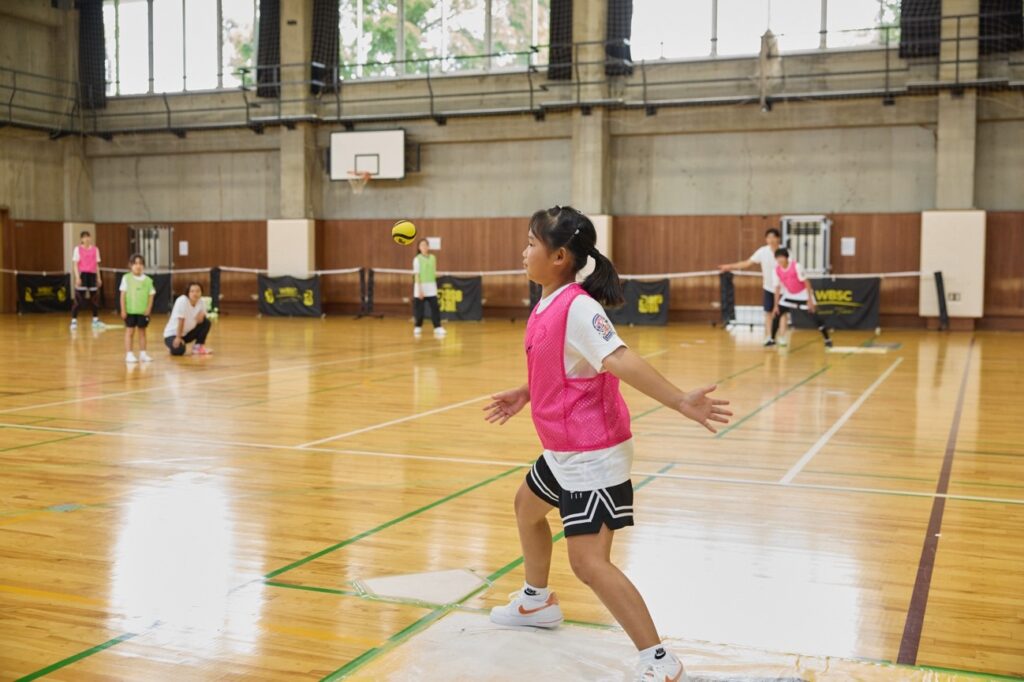
General Incorporated Association Junk Baseball Club (Junk Baseball Club), works to support girls through Baseball 5, and operates under the mission of “enriching lives through baseball.” In addition to opportunities to play sport and develop their sport skills, the program provides social skill development opportunities for participants, such as communication skills and leadership, for example.
“Baseball 5” is a sport introduced by the World Baseball and Softball Confederation (WBSC) in 2017 as part of its efforts to promote baseball and softball. The basic rules are the same as those of baseball and softball, but the main feature is that games are played by a team of five players (mixed gender in official international tournaments). It can be played anywhere and requires only a rubber ball. It’s played in more than 70 countries around the world and has been added as an official event of the Dakar Youth Olympic Games to be held in 2026. It’s attracting attention as the first mixed-gender sport.
The Baseball 5 division of Junk Baseball Club holds “Junk Academy,” a ball exercise class, about once a month. It aims to address gender inequality and promote girls’ health and wellbeing in the areas surrounding Machida City, Tokyo by taking advantage of the characteristics of Baseball 5, which is played in mixed gender. Their workshop helps the participants deepen their knowledge through the talks by female guest speakers who are active in women’s health education and other fields in society.
Kenta Wakamatsu, Representative Director, said, “we know that in Machida City the participation rate of girls in sports is about 26.5 percent lower than that of boys. So, we offer regular Baseball 5 classes and workshops with guest speakers for late elementary and junior high school students.”
“I and other members of the team have been selected as coaches and players for the Japan national Baseball 5 team in the past. The program is delivered by a team of trained coaches, including myself, who are well versed in Baseball 5, and that’s our signature,” said Wakamatsu.
Manae Matsuura, a student staff member, said, “when I was in elementary school, I joined a boys’ baseball team where I was the only girl and all the other players were boys. In grade 6, I was selected as a representative for the Kanagawa prefectural women’s team. But in the junior high school, I had to give up on playing baseball, as I couldn’t find a team for girls to play in. In college, I found Baseball 5, a mixed-gender sport, and now I am happy to play it. I find it appealing that the difference in abilities of men and women does not inhibit us in playing in games.”
For more information, please visit the Junk Baseball Club website for more information.
NPO J Camp – wheelchair basketball
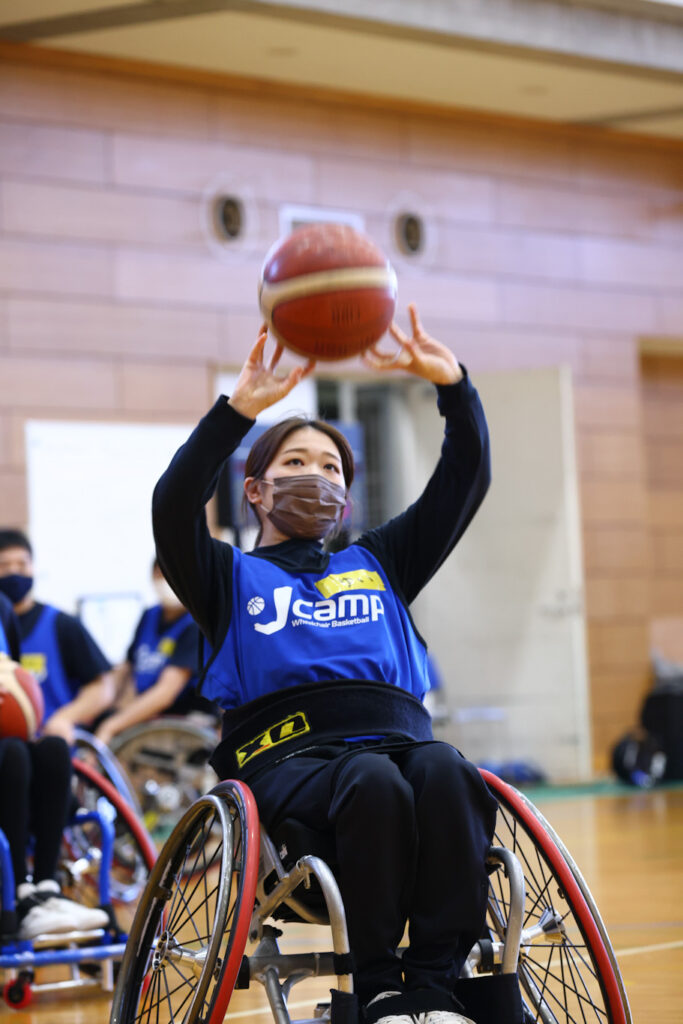
NPO J Camp, which mission is “to convey the true joy of wheelchair basketball and to pursue human potential,” aims to create a social environment where people can dream of their own potential and make their own choices and decisions without having their disabilities limit their options, by conducting projects centered on wheelchair basketball camps.
Its wide-ranging activities include holding the J-Camp wheelchair basketball camp, overseas training camp programs, information provision (collection and provision of wheelchair basketball-related information, especially overseas information), and human resource development (dispatching personnel to coaching clinics and holding study sessions).
Shinpei Oikawa, Representative Director, explained, “J Camp encourages young women with disabilities to ‘push’ their own boundaries and move powerfully into the future through our new project ‘Push for Future’ which is supported by Play Academy and consists of two programs; ‘Leadership Program’ and ‘Play Date.”
The “Leadership Program” is designed to help young women with disabilities develop confidence and leadership skills through online workshops on topics such as leadership and gender and sports. It provides opportunities for them to learn with peers and support each other. The “Play Date” creates opportunities for girls with disabilities to enjoy physical activity and play in a girls-only space in wheelchair sports.
“We aim to create a project that the daily efforts of those involved in Push for Future contribute to building a diverse and inclusive community and society where everyone can enjoy sports,” said Oikawa enthusiastically.
For more information on Push for Future, please visit J Camp’s website.
General Incorporated Association Tokyo Sports Cross Lab – school sports
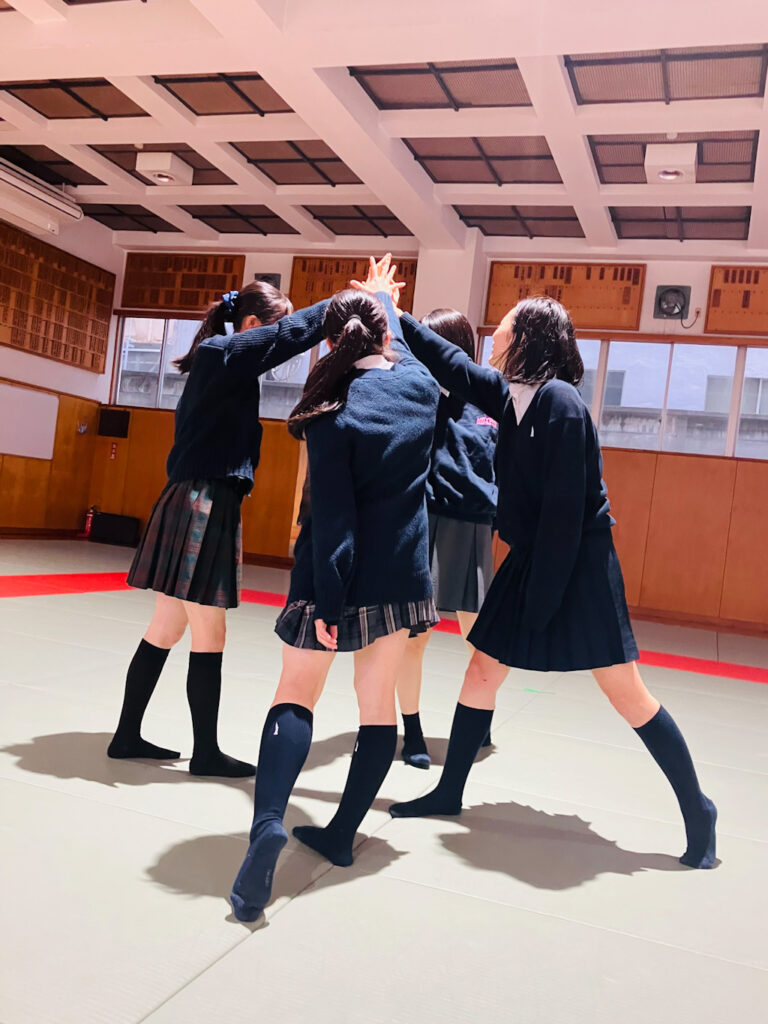
The “Girls Life Skills x SRHR* in sports project” is designed to help girls in junior high school aged 12 to 16 years in Shibuya Ward and Minato Ward, a program newly launched with support of Play Academy. Through sports, the project aims to improve self-esteem, hone communication and leadership skills, strengthen bonds with peers, foster cooperation, and develop the ability to overcome obstacles to achieve goals, thereby improving the quality of daily life and developing the essential life skills.
Tokyo Sports Cross Lab is a general incorporated association established in 2017 with the vision of “connecting people, things, and events in the world through sports and spreading them through sports, thereby contributing to creating an environment where everyone can be healthy and happy.”
Aiming to create a society where all schoolchildren can enjoy sports and extracurricular activities, the organization supports teenage girls in particular so that they can continue to do so on an ongoing and permanent basis.
Representative Director Yoshimi Terai is keenly aware of the issue, saying, “we are attending the results of a survey by the Japan Sports Agency, which showed that 80 percent of teenage girls feel that they like to exercise and play sports, yet the rate of sports participation declines sharply after junior high school.”
Terai considers that there are many factors behind this girl-specific problem; including the fact that physical education and extracurricular activities are often taught by men in schools, gender related issues in school education, and the difficulty of dealing with the physical changes caused by puberty. The program is needed for girls to learn and confront these issues through sports during their teenage years, a time of great mental and physical change.
“Through the project, we aim to create an environment where girls can enjoy and continue to participate in sports, while improving their self-esteem, honing their communication and leadership skills, strengthening their bonds with their peers, fostering cooperation, and cultivating the ability to overcome obstacles to achieve their goals. We aim to help them acquire the essential life skills,” said Terai, speaking of a positive future.
For more information, please visit Tokyo Sports Cross Lab’s website.
*SRHR (Sexual and Reproductive Health and Rights):
Every individual has the right to make their own choices with appropriate knowledge about sexual and reproductive health. The dignity and health of all individuals must be respected and protected by their own will and choice.
In 2024, Play Academy has fostered their support towards girls through sport, with total seven community programs in Tokyo including the three programs introduced above.
